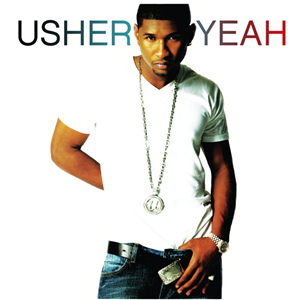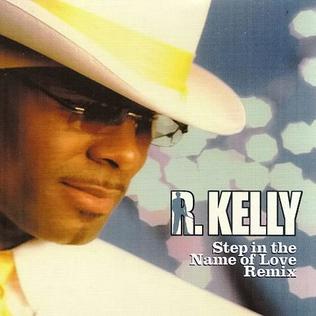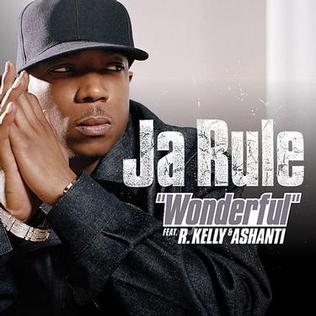Related Research Articles

"My Girl" is a soul music song recorded by the Temptations for the Gordy (Motown) record label. Written and produced by the Miracles members Smokey Robinson and Ronald White, it became the Temptations' first U.S. number 1 single, and is considered their signature song. Robinson's inspiration for writing "My Girl" was his wife, Miracles member Claudette Rogers Robinson. The song was included on the Temptations 1965 album The Temptations Sing Smokey. In 2017, the song was selected for preservation in the National Recording Registry by the Library of Congress as being "culturally, historically, or aesthetically significant".

"I Can't Get Next to You" is a 1969 No. 1 single recorded by the Temptations and written by Norman Whitfield and Barrett Strong for the Gordy (Motown) label. The song was a No. 1 single on the Billboard Top Pop Singles chart for two weeks in 1969, from October 18 to October 25, replacing "Sugar, Sugar" by the Archies and replaced by "Suspicious Minds" by Elvis Presley. The single was also a No. 1 hit on the Billboard Top R&B Singles for five weeks, from October 4 to November 1, replacing "Oh, What a Night" by the Dells, and replaced by another Motown song, "Baby I'm For Real" by the Originals.

"You're All I Need to Get By" is a song recorded by the American R&B/soul duo Marvin Gaye and Tammi Terrell and released on Motown Records' Tamla label in 1968. It was the basis for the 1995 single "I'll Be There for You/You're All I Need to Get By" from Method Man and Mary J. Blige.

"Let Me Love You" is a song by American singer Mario, released by J Records on October 4, 2004 as the lead single from his second studio album, Turning Point (2004). The song was written by then-unknown American singer Ne-Yo, Kameron Houff, and Scott Storch, while production was handled by the latter. The song garnered Mario a Grammy Award nomination for Best Male R&B Vocal Performance in 2006 and peaked atop five international music charts: the Billboard Hot 100, Canada's Radio & Records, Official German Charts, Dutch Top 40, and Recorded Music NZ.

"Drop It Like It's Hot" is a song by American rapper Snoop Dogg featuring fellow American rapper Pharrell Williams. It was released on September 27, 2004, as the lead single from Snoop Dogg's seventh studio album, R&G : The Masterpiece (2004). The song was produced by the Neptunes. It is regarded as an iconic song, with Snoop performing the chorus and the second and third verses while Pharrell performs the first verse.
"I Almost Lost My Mind" is a popular song written by Ivory Joe Hunter and published in 1950. Hunter's recording of the song was a number one hit on the US Billboard R&B singles chart in that year.
Linked here are Billboard magazine's number-one rhythm and blues hits. The Billboard R&B chart is today known as the Hot R&B/Hip-Hop Songs chart.

"Yeah!" is a song by American singer Usher featuring American rappers Lil Jon and Ludacris. The song is written by the featured artists alongside Sean Garrett, Patrick "J. Que" Smith, Robert McDowell, and LRoc. The song incorporates crunk and R&B—which Lil Jon coined as crunk&B—in the song's production. The song was released as the lead single from Usher's fourth studio album Confessions (2004) on January 10, 2004, after Usher was told by Arista Records, his label at the time, to record more tracks for the album.

"Missing You" is a song performed by American singer Diana Ross, recorded for her 1984 album Swept Away. The song was written, composed, and produced by Lionel Richie as a tribute to Marvin Gaye, who was murdered by his father earlier that year. The memorial song was released as the album's fourth single on November 13, 1984, by RCA. Richie also provided background vocals on the song.

"Proud Mary" is a song by American rock band Creedence Clearwater Revival, written by vocalist and lead guitarist John Fogerty. It was released as a single in January 1969 by Fantasy Records and on the band's second studio album, Bayou Country. The song became a major hit in the United States, peaking at No. 2 on the Billboard Hot 100 in March 1969, the first of five singles to peak at No. 2 for the group.

"If I Ain't Got You" is a song recorded by American singer-songwriter Alicia Keys for her second studio album The Diary of Alicia Keys (2003). Inspired by the 2001 death of singer Aaliyah, the September 11 attacks, and other events in the world and in Keys' life, the song is about "how material things don't feed the soul". It was released as the second single from The Diary of Alicia Keys on February 17, 2004, by J Records. The single cover depicts Keys similarly to the subject of Man Ray's 1924 photograph Le Violon d'Ingres.

American singer Usher has released nine studio albums, ten compilation albums, eight extended plays, and 81 singles. His music has been released on the LaFace, Arista, Jive, and RCA record labels. Usher has sold more than 33 million albums in the United States alone and over 65 million albums worldwide. With over 150 million total records sold worldwide, he is one of the best selling music artists of all time. He has nine number-one singles and 18 Hot 100 top-ten singles on the US Billboard Hot 100. In 1994, Usher released his self-titled debut album in North America, which went onto sell 500,000 copies, and produced the singles "Can U Get wit It", "Think of You", and "The Many Ways". The former two peaked in the lower half of the UK and US charts. His follow-up 1997 album My Way sold over 8 million copies worldwide, becoming his breakthrough album. It is certified seven-times platinum in the US, and spawned three successful singles, including his first UK number-one song, "You Make Me Wanna...", and first US Hot 100 number-one song, "Nice & Slow". Usher's success continued in 2001, with his third studio album, 8701. It debuted at number four on the Billboard 200. The album produced two number-one singles, such as "U Remind Me" and "U Got It Bad". In 2002, the album was certified five-times platinum in the US for sales of 5 million copies. As of 2010, its worldwide sales stand at over 8 million.

"Change Clothes" is the first official single from rapper Jay-Z's studio album The Black Album. It featured additional vocals by Pharrell Williams (uncredited) and was produced by The Neptunes. The song reached No. 10 on the Billboard Hot 100 in December, 2003.

"My Boo" is a duet between American R&B singers Usher and Alicia Keys, written by the artists alongside Adonis Shropshire, Manuel Seal, and Jermaine Dupri, the latter of whom produced it with No I.D.—who is uncredited. It was included on the re-release of Usher's fourth studio album, Confessions (2004). The song was released as the album's fourth single on August 29, 2004.

"Step in the Name of Love (Remix)" is a song by R&B singer R. Kelly. Taken from the 2003 album Chocolate Factory, the song became the tenth single from Kelly (and the final one to date) to reach #1 on the R&B chart, particularly on the strength of the song's remix. It also peaked at number nine on the pop charts on December 2, 2003. The original "Step in the Name of Love", which is on the unreleased 2002 album "Loveland" as well as the Chocolate Factory album, described a dance style initially created in Chicago called "stepping". That dance, and the music associated with it, was heavily featured on disc one of his 2004 double album, "Happy People/U Saved Me". The song became an impromptu "anthem" for steppers and the dance. In the UK, the song was a double A-side with "Thoia Thoing".

"Wonderful" is a song by American rapper Ja Rule. It was released on September 27, 2004, as the lead single from his sixth studio album, R.U.L.E. (2004), through The Inc. Records and Island Def Jam. The song features American pop-R&B singer-songwriters R. Kelly and Ashanti. "Wonderful" topped the UK Singles Chart, reached #5 on the US Billboard Hot 100, peaked at #6 in both Australia and New Zealand; the single became a Top-20 hit in Denmark, Germany, Ireland, the Netherlands, and Switzerland.

"Hotel" is a song by American rapper Cassidy, released by J Records and Swizz Beatz's Full Surface Records as his commercial debut single on September 29, 2003. The song also serves as the lead single from his debut album, Split Personality. The track was produced by Swizz Beatz and features R. Kelly on featured vocals. "Hotel" reached number four on the US Billboard Hot 100 and number three on the UK Singles Chart.

"Happy People" is a song by American R&B recording artist R. Kelly. Like Kelly's previous single, "Step in the Name of Love", the song is about the stepping dance. It was released on March 22, 2004, as the lead single from his second double album, Happy People/U Saved Me (2004). The song went to number 19 on the US Billboard Hot 100 and number seven on the Billboard Hot R&B/Hip-Hop Singles & Tracks chart. In some territories, it was released as a double A-side with "U Saved Me"; this issue peaked at number six in the United Kingdom.
References
- ↑ Whitburn, Joel (2004). Top R&B/Hip-Hop Singles: 1942-2004. Record Research. p. 364.